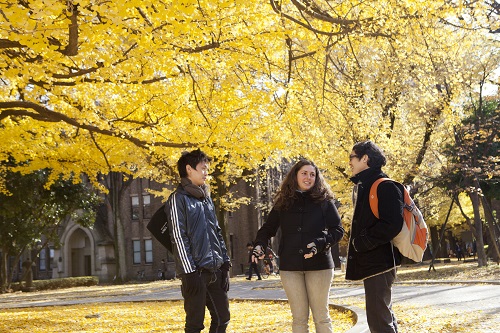Create Opportunity: Embracing Free Boarding Schools for a Brighter Future

free boarding schools In the quest for educational excellence, the idea of free boarding schools often emerges as a beacon of hope. These institutions offer a unique opportunity for students to receive a high-quality education without the financial burden typically associated with boarding schools. Embracing free boarding schools can be a transformative decision, opening doors to academic and personal growth that might otherwise be inaccessible. This comprehensive guide will delve into the advantages of free boarding schools, how to find them, and what to expect from this remarkable educational path.

Understanding Free Boarding Schools
Free boarding schools are institutions that provide lodging, meals, and education at no cost to students. They aim to offer equal opportunities for all, regardless of financial background. These schools often come with a mission to serve underprivileged or underserved populations, ensuring that talented students from various backgrounds have access to quality education and personal development.
Key Characteristics of Free Boarding Schools
- No Tuition Fees: Students receive education and accommodation without incurring tuition fees, making it an accessible option for families with limited financial resources.
- Holistic Education: These schools typically offer a comprehensive educational experience, including academic instruction, extracurricular activities, and personal development programs.
- Supportive Environment: Free boarding schools often foster a nurturing environment that promotes growth, discipline, and resilience.
Advantages of Attending Free Boarding Schools
1. Access to Quality Education
Free boarding schools often provide a high standard of education, comparable to or even surpassing that of private and charter schools. This access to quality education is a major advantage for students who might otherwise struggle to find suitable educational opportunities.
Rigorous Academic Programs
- Curriculum Excellence: The curriculum at free boarding schools is designed to challenge students and prepare them for higher education and future careers. These programs include advanced coursework, critical thinking opportunities, and a focus on academic excellence.
- Experienced Faculty: Highly qualified and dedicated teachers are a hallmark of these institutions. Their expertise and commitment to education contribute significantly to students’ academic achievements.
Enrichment Opportunities
- Extracurricular Activities: Students have access to a wide range of extracurricular activities, including sports, arts, and leadership programs. These activities complement academic learning and foster well-rounded development.
- Special Programs: Many free boarding schools offer specialized programs, such as STEM initiatives, language immersion, or artistic training, which provide additional opportunities for growth and exploration.
2. Personal Growth and Development
Attending a free boarding school can be a profound experience for personal growth. The structured environment and supportive community play a crucial role in shaping students’ character and life skills.
Development of Independence
- Self-Reliance: Living away from home encourages students to develop self-reliance and independence. They learn to manage their time, responsibilities, and personal needs effectively.
- Problem-Solving Skills: The challenges of boarding school life help students build strong problem-solving skills. They navigate daily obstacles and develop resilience through practical experiences.
Emotional and Social Growth
- Community Building: Free boarding schools foster a sense of community and belonging among students. The close-knit environment promotes strong relationships and peer support.
- Emotional Resilience: Students learn to handle various emotional challenges, including homesickness and social dynamics, in a supportive setting that helps them develop emotional resilience.
3. Equal Opportunities for All
One of the most compelling reasons to embrace free boarding schools is their commitment to providing equal opportunities regardless of financial background. This commitment helps level the playing field and ensures that all students have a chance to succeed.
Breaking Financial Barriers
- Access for Underserved Populations: Free boarding schools are designed to serve students from low-income or disadvantaged backgrounds. By removing financial barriers, these schools provide access to high-quality education that might otherwise be out of reach.
- Scholarships and Grants: Some free boarding schools are funded through scholarships, grants, or donations, which help sustain their mission of providing education at no cost.
Fostering Diversity and Inclusion
- Inclusive Environment: Free boarding schools often emphasize diversity and inclusion, creating a multicultural environment where students learn from each other’s experiences and perspectives.
- Equitable Resources: These schools strive to offer equitable resources and opportunities, ensuring that all students have access to the same high-quality education and support.
Finding the Right Free Boarding School
1. Research and Identify Schools
Finding the right free boarding school involves thorough research and evaluation. Consider the following steps to identify schools that align with your needs and expectations.
Online Resources and Directories
- Educational Directories: Use online educational directories and databases to find free boarding schools. These resources often provide detailed information about the schools, including their missions, programs, and admission requirements.
- School Websites: Visit the websites of potential schools to learn more about their offerings, values, and application processes. Many schools provide comprehensive information about their programs and admissions.
Recommendations and Referrals
- Consult with Educators: Seek recommendations from educators, counselors, or community organizations who may have knowledge of free boarding schools. Their insights can guide you toward reputable institutions.
- Connect with Alumni: Reach out to alumni or current students of the schools you are considering. Their firsthand experiences can offer valuable perspectives on what to expect.
2. Evaluate School Fit
Once you have identified potential schools, evaluate how well they fit your child’s needs and goals. Consider the following factors to ensure a good match.
Academic and Extracurricular Programs
- Program Alignment: Assess whether the school’s academic and extracurricular programs align with your child’s interests and aspirations. Look for schools that offer programs that cater to their academic strengths and personal passions.
- Support Services: Evaluate the support services provided, including academic counseling, career guidance, and personal development programs. Ensure that these services will benefit your child’s overall growth.
Campus Environment and Culture
- Campus Visits: If possible, visit the campuses of the schools you are considering. Observe the environment, facilities, and interactions among students and staff to get a sense of the school’s culture and atmosphere.
- School Values: Consider whether the school’s values and mission align with your family’s beliefs and expectations. A shared vision can contribute to a positive and fulfilling experience for your child.
3. Application and Admission Process
The application and admission process for free boarding schools may vary, so it’s important to understand the requirements and steps involved.
Application Requirements
- Documentation: Prepare the necessary documentation for the application, including academic records, personal statements, and letters of recommendation. Each school may have specific requirements, so follow their guidelines closely.
- Interviews and Assessments: Some schools may require interviews or assessments as part of the admission process. Be prepared for these assessments and ensure your child is ready to showcase their strengths and potential.
Financial Considerations
- Financial Aid: Even though the school is free, there may be additional costs for items such as uniforms, extracurricular activities, or travel. Review any potential expenses and plan accordingly.
- Understanding Funding Sources: Research how the school is funded and whether there are any requirements or conditions associated with receiving a free education. Understanding the funding sources can provide insight into the school’s sustainability and mission.
What to Expect from Free Boarding Schools
1. Daily Life and Routine
Life at a free boarding school is characterized by a structured routine that includes academic classes, extracurricular activities, and personal time.
Academic Schedule
- Class Structure: Students follow a structured academic schedule that includes core subjects, elective courses, and enrichment activities. The schedule is designed to balance academic rigor with opportunities for exploration and growth.
- Study Time: Dedicated study time and academic support are integral to the daily routine. Students have access to resources and assistance to help them succeed in their coursework.
Extracurricular Activities
- Clubs and Sports: Students participate in a variety of extracurricular activities, including clubs, sports teams, and arts programs. These activities enhance personal development and provide opportunities for leadership and teamwork.
- Community Events: Schools often host community events and outings that promote social interaction and engagement. These events contribute to a vibrant and supportive school culture.
2. Support and Resources
Free boarding schools are committed to providing support and resources to help students succeed academically and personally.
Academic Support
- Tutoring and Mentoring: Many schools offer tutoring and mentoring programs to provide additional academic support. These programs help students address challenges and achieve their academic goals.
- Career Counseling: Career counseling services assist students in exploring career options, setting goals, and preparing for future opportunities. These services are valuable for students considering higher education or vocational paths.
Personal Development
- Counseling Services: On-site counseling services support students’ emotional and psychological well-being. Counseling helps students manage stress, build resilience, and develop coping strategies.
- Life Skills Training: Free boarding schools often include life skills training as part of their curriculum. This training covers essential skills such as time management, communication, and financial literacy.
Conclusion
Embracing free boarding schools presents a unique and valuable opportunity for students to achieve academic excellence and personal growth without the financial burden. By providing access to high-quality education, supportive environments, and comprehensive support services, these schools create pathways to success for students from diverse backgrounds. The journey of finding the right free boarding school involves research, evaluation, and understanding what to expect from the experience. With careful consideration and a commitment to educational excellence, free boarding schools can indeed pave the way for a brighter and more promising future for students.







